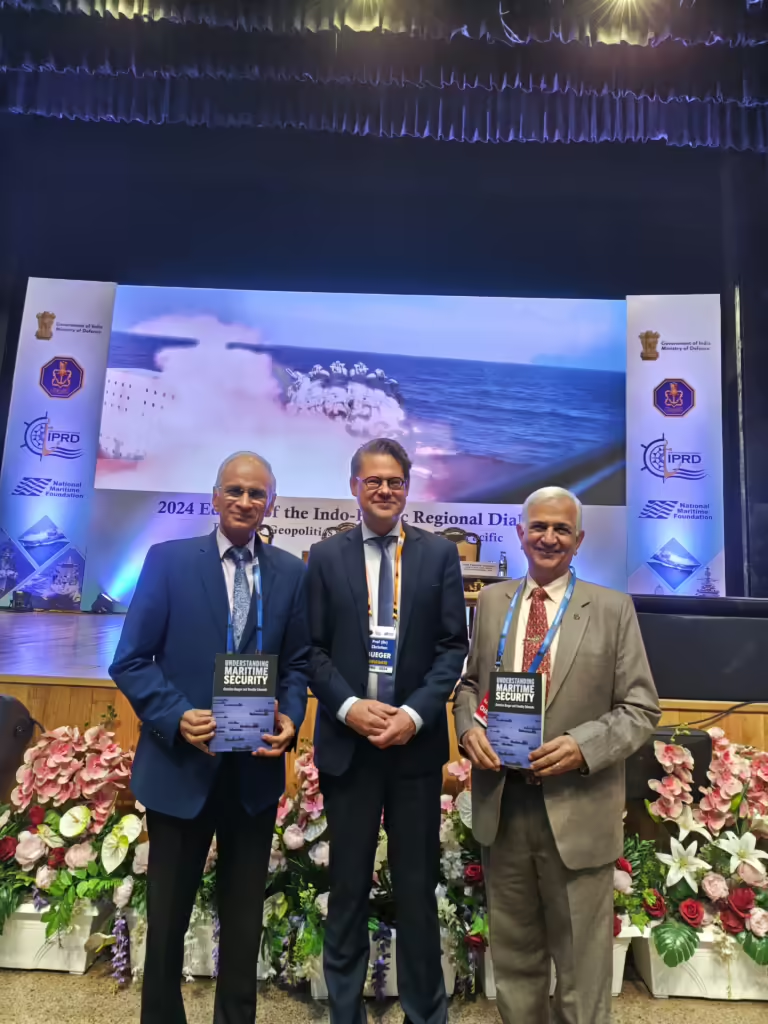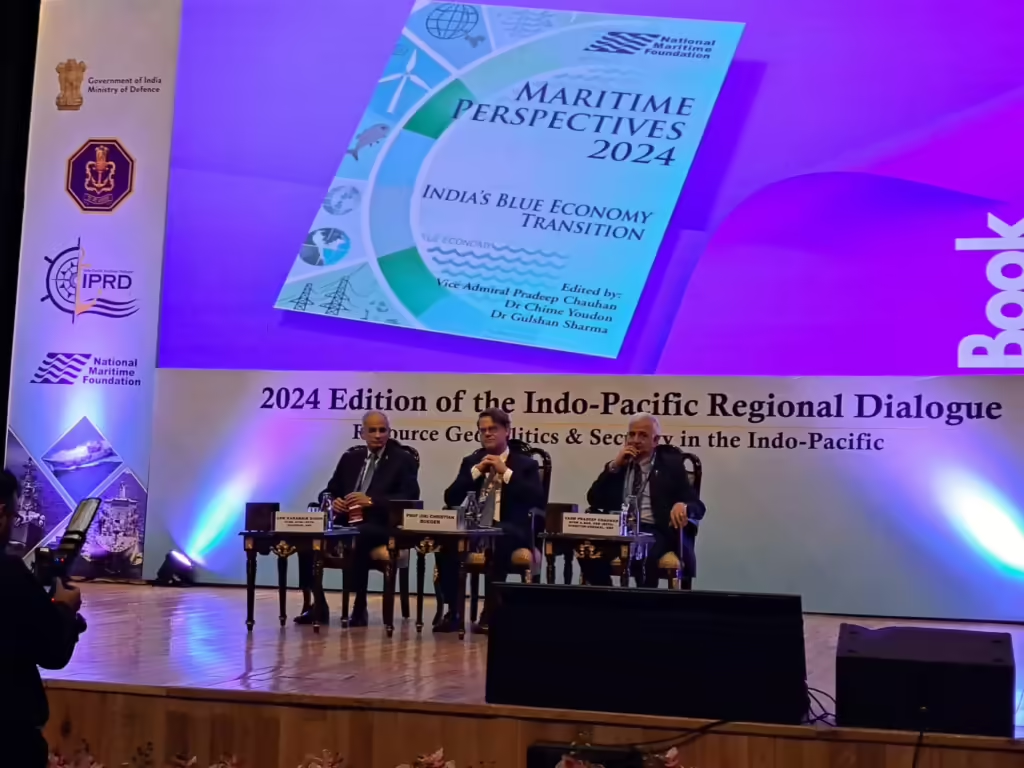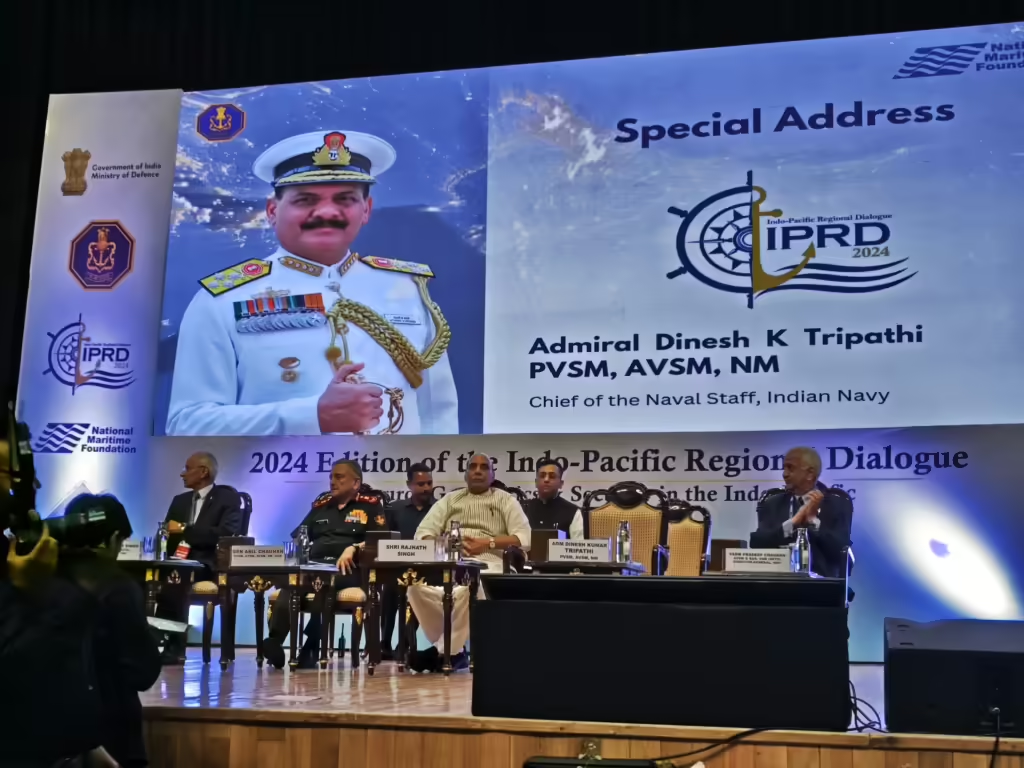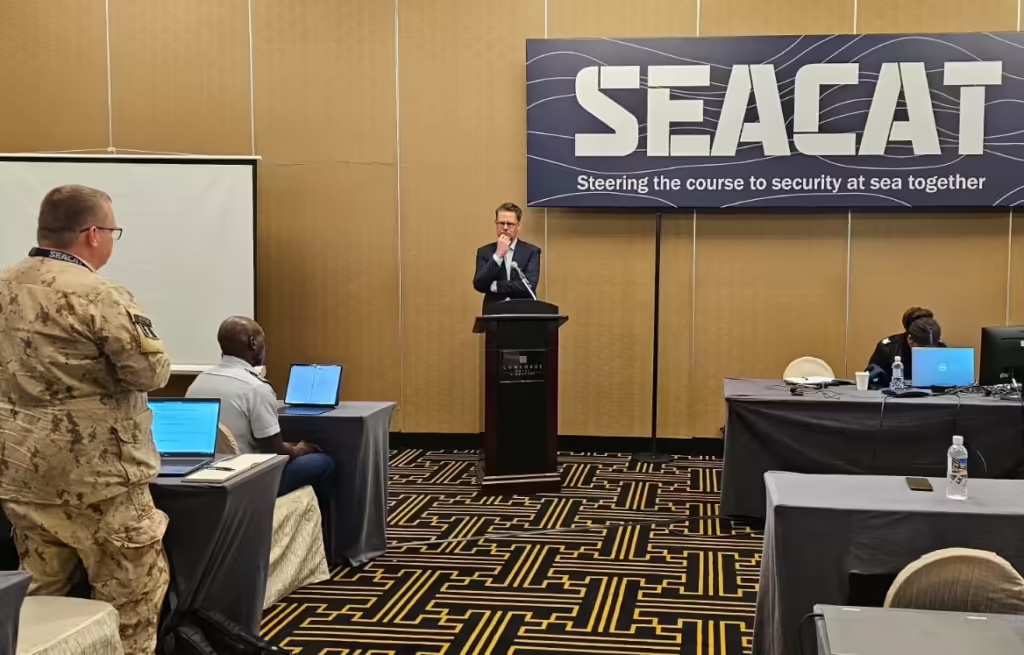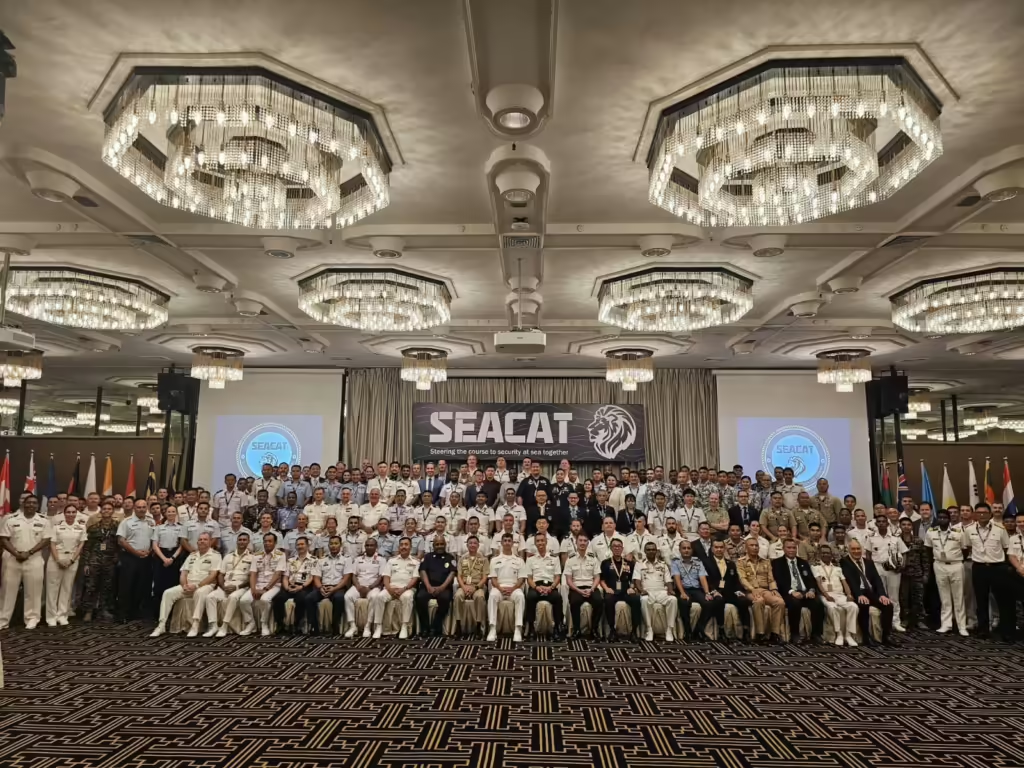This week I have been contributing to the annual Regional Maritime Practitioner Programme (RMPP) for the fourth time. Organized by the Singapore Navy in partnership with the maritime security team at RSIS | S. Rajaratnam School of International Studies, RMPP is a major networking and training event for maritime security.
The event reflects that, despite being a small state, Singapore is a major maritime power. The country plays an important role in regional maritime security cooperation. It hosts the most important high-level naval gathering in the region, is known as a pioneer in regional maritime domain awareness through the Information Fusion Center (IFC), and frequently engages in and supports capacity building and training initiatives. The RMPP is one example of this.

At its core, the event is a maritime security community building initiative. It combines educational content with networking and, as the organizers call it, “the Singapore experience” – ample time for the group to explore maritime-related attractions in the garden city.
The event’s stated aim is “to enhance appreciation of the evolving regional maritime security environment and associated security challenges, to build professional knowledge and requisite skills to perform duties as a maritime security practitioner, and to forge friendships and build trust among regional maritime security practitioners.”
About half of the time is spent with lectures and group exercises, while the afternoons are reserved for excursions, including to the splendid Singapore Navy museum (worth a visit!). It also includes attendance at the Shared Awareness Meeting (SAM) through which the IFC keeps the local maritime industry informed about maritime security trends.
About 150 officials from navies, coastguards, and the maritime industry participated this year. Initiatives such as the RMPP are partially a confidence building measure, but also ensure interoperability and the relationships of trust that the IFC’s information sharing network relies on.
The direct impact of events such as RMPP is difficult to measure. Yet, it is part of a global chain of such events, which arguably have had the effect of building a strong maritime security consensus over the last decades.




